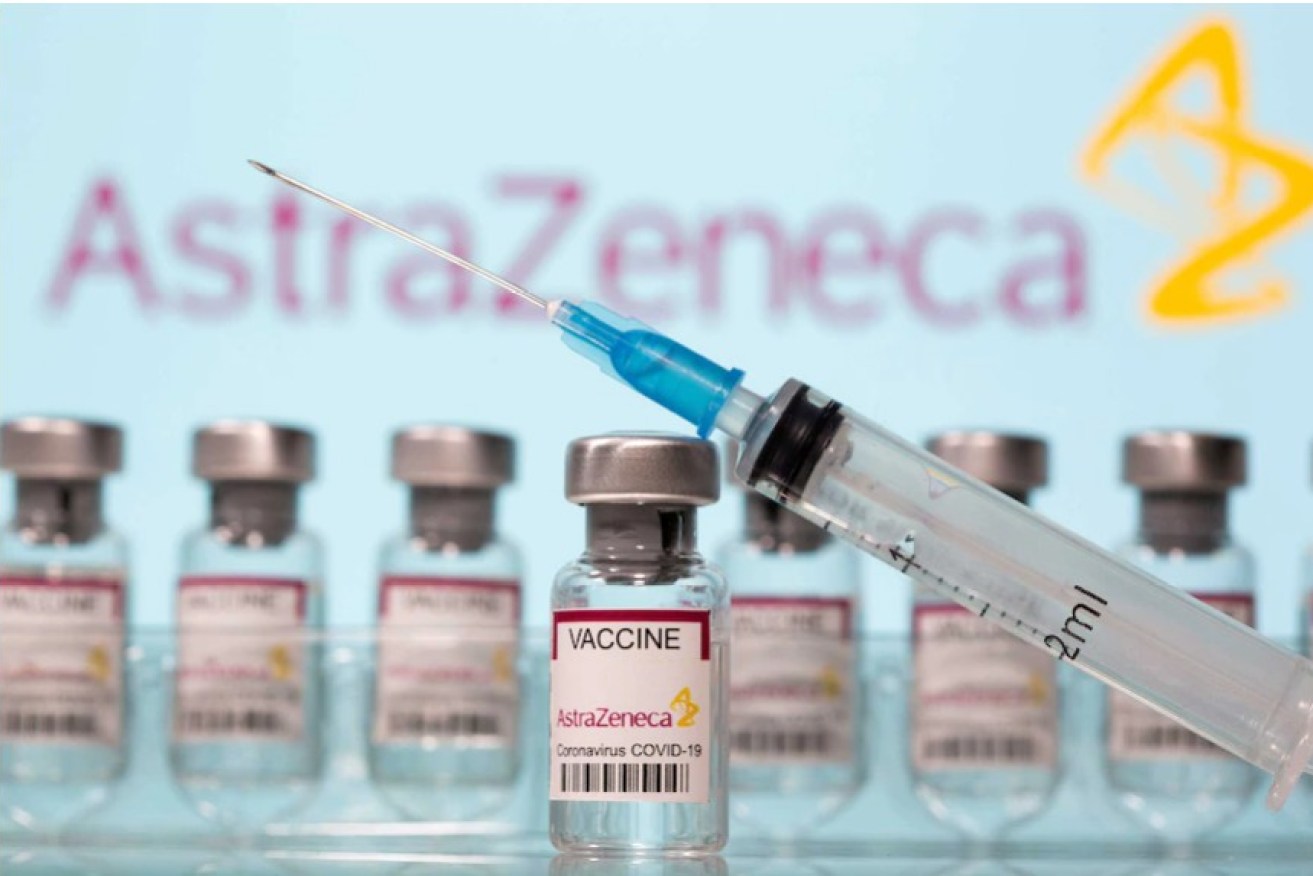Three new blood clot cases linked to AstraZeneca, including first person over aged 50

AstraZeneca offers strong protection against serious illness and death, Mr Hunt said. Photo: ABC
The Therapeutic Goods Administration (TGA) has confirmed three new instances of blood clots in Australia linked to the AstraZeneca vaccine, including the first case in someone over the age of 50.
Last week the TGA confirmed the fatal blood clotting suffered by a 48-year-old Australian woman was likely linked to the AstraZeneca COVID-19 vaccine.
She was the third Australian to have developed clots after the vaccine. There have now been six cases of blood clots, or thrombosis with thrombocytopenia syndrome (TTS), linked to the AstraZeneca vaccine in Australia, from 1.1 million doses.
The three new cases are a 35-year-old woman from New South Wales, a 49-year-old Queensland man and an 80-year-old Victorian man, who is the first case over 50 years of age.
Whilst meeting the international and UK criteria, two of the three cases appear to be milder forms of the syndrome that were recognised very early by the treating health professionals and are responding well to treatment, and in one of the cases platelet counts were depressed to a limited extent and the patient developed symptoms unusually late (26 days after vaccination).”
The TGA said one of the cases involved a blood clot in the brain, which caused a headache, a nosebleed, nausea and vomiting.
The other two cases presented in more common ways — deep vein thrombosis in the calf and upper leg — although clots in the lungs and brain were later found.
The Australian Technical Advisory Group on Immunisation (ATAGI) estimates TTS occurs at a rate of about six in 1 million people vaccinated, but that rate jumps to 20-40 per million in people under 50 years of age.
“However, Australian estimated age-specific incidence rates are imprecise due to small numbers and will be updated as further information become available,” the TGA said.
After the ATAGI’s estimates were revealed and it reaffirmed the risks of AstraZeneca outweighed the dangers in people over 50, Chief Medical Officer Paul Kelly confirmed the rejigged rollout plan for the vaccines, with all people over 50 getting access to AstraZeneca from next month.
“The recalibrated vaccine rollout plan is consistent with the advice received from ATAGI today – that Pfizer is the recommended vaccine for those under 50 years of age,” Professor Kelly said.
The TGA said people who have received the vaccine should be on the lookout for symptoms like a severe or persistent headache or blurred vision; shortness of breath, chest pain, leg swelling or persistent abdominal pain; or unusual skin bruising and/or pinpoint round spots beyond the site of injection.
The AstraZeneca vaccine has been recommended for people over 50, while Pfizer is preferred for Australians under 50 because the clotting cases, until now, have all been in that age bracket.
The TGA’s Vaccine Safety Investigation Group (VSIG) confirmed all three new cases were linked to the vaccine.
“All three patients are clinically stable, have responded well to treatment and are recovering,” a TGA statement read.
“Whilst meeting the international and UK criteria, two of the three cases appear to be milder forms of the syndrome that were recognised very early by the treating health professionals and are responding well to treatment, and in one of the cases platelet counts were depressed to a limited extent and the patient developed symptoms unusually late (26 days after vaccination).”
The TGA said one of the cases involved a blood clot in the brain, which caused a headache, a nosebleed, nausea and vomiting.
The other two cases presented in more common ways — deep vein thrombosis in the calf and upper leg — although clots in the lungs and brain were later found.
The Australian Technical Advisory Group on Immunisation (ATAGI) estimates TTS occurs at a rate of about six in 1 million people vaccinated, but that rate jumps to 20-40 per million in people under 50 years of age.
“However, Australian estimated age-specific incidence rates are imprecise due to small numbers and will be updated as further information become available,” the TGA said.
After the ATAGI’s estimates were revealed and it reaffirmed the risks of AstraZeneca outweighed the dangers in people over 50, Chief Medical Officer Paul Kelly confirmed the rejigged rollout plan for the vaccines, with all people over 50 getting access to AstraZeneca from next month.
“The recalibrated vaccine rollout plan is consistent with the advice received from ATAGI today – that Pfizer is the recommended vaccine for those under 50 years of age,” Professor Kelly said.
The TGA said people who have received the vaccine should be on the lookout for symptoms like a severe or persistent headache or blurred vision; shortness of breath, chest pain, leg swelling or persistent abdominal pain; or unusual skin bruising and/or pinpoint round spots beyond the site of injection.








